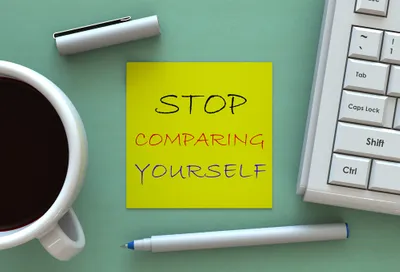Are you glass half-empty or a glass half-full type of person? It comes down to how you see life in general – and this can affect your everyday decisions, as well as have an impact on your health.
According to various sources, having a sunny disposition without letting too much bother you can help you recover from illnesses faster, as well as help you avoid getting them in the first place. However, how does one become an optimist? It’s not easy, but let’s explore six ways…
1. Write Down Negative Thoughts
According to Psychology Today, recording your negative thoughts is one way of clearing them out of your head. The source suggests writing the thought in one column, then trying to back it up with evidence in a column next to it, with another column containing evidence against the thought.
It doesn’t sound that easy, and it may not be. The source notes you’ll probably have a much easier time backing up the negative thought at first, but over time you’ll be able to find more ways to refute the negative thought with more ease.
2. Hang Out With Positive People
If you have friends that are readily backing up your dark view of life, you’ll probably never break out of the cycle of negative thoughts and pessimism. “You are the sum of the people you spend time with,” notes an article from Fast Company.
Being around “upbeat” people can give you inspiration and make you more excited about the possibilities of life. Optimistic people tend to energize you, while pessimists tend to be draining to be around, notes the source.
3. Embrace Emotions
As WikiHow points out, being an optimist doesn’t mean you have to walk around being annoyingly happy all the time. You can still take time to reflect on unpleasant situations and accept that you will have unpleasant emotions occasionally – they’re part of life. “Trying to repress a certain type of emotion can cause severe emotional distress,” it adds.
The source suggests instead of ignoring negative emotions, to be “mindful” when they happen. As noted earlier, writing down your negative experiences and immediate responses to them can help you examine them later and decide whether that’s the type of approach you want to take. Ask yourself – was it an external factor that made you upset, or were you already dealing with a bad mood?
4. Use Your Brain’s Natural ‘Gardening’ System
Another article from Fast Company says your brain is like a “garden” – if you don’t use certain synaptic connections, your brain will destroy them. What this basically means is that if you don’t think positive thoughts, your brain will be trained not to have them. This “pruning” process is how your brain gets rid of unused connections to make way for new learning, it adds.
The thoughts you have on a regular basis get “watered and oxygenated” like flowers, so you should be mindful of what you’re being mindful about, adds the source. “To take advantage of your brain’s natural gardening system, simply think about the things that are important to you,” it suggests.
5. Don’t See Optimism as a Weakness
If you’re a pessimist, you are probably also a critical thinker that questions many aspects of life, and that’s not such a bad thing. WikiHow reminds you that “true optimism is different from blind optimism,” the latter being a belief that nothing bad will ever happen.
Blind optimism can be dangerous because it can distort your confidence, or leave you very disappointed if something doesn’t go your way. Meanwhile, “True optimism doesn’t just ignore challenges or pretend that negative feelings and experiences don’t exist. It acknowledges those challenges and then says, ‘I can work through those!'” adds the source.
6. Don’t Compare Yourself to Others
It’s easy to look at others or see what they’ve achieved and feel like you’re unable to achieve anything yourself. “Comparison can ruin your self-esteem and prevent you from living the life you want,” notes Womanitely.com.
Just because someone else appears to be more successful than you, doesn’t mean you don’t deserve to be happy and have a positive outlook, it adds. “Even billionaires have bad days, and have many problems to fix,” it adds. Approach difficult tasks with a more positive mindset and they won’t seem as hard, notes the source.









